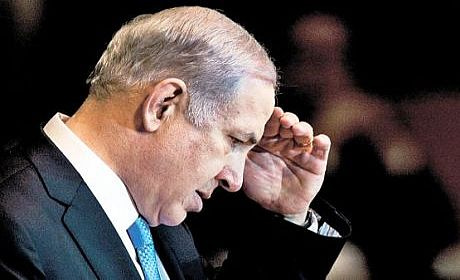We Should Not Underestimate the Enemy

There is no doubt that Israel's attack against Gaza astonished Tel Aviv more than anybody else. The Israelis did not imagine that the Palestinian resistance had missiles which could shake the capital, and even beyond that to Herzliya. Despite all their claims, it became clear that Israel's missile defense shield is not very reliable. Tel Aviv claims that this shield was able to contain almost 80% of the missiles launched from Gaza, but the fact is that, based on the reports of international observers, this shield, in the most optimistic scenario, contained only 50% of the missiles. It is also true that Israel was dealt heavy costs by Hamas, which was unimaginable. While Israel is faced with an economic crisis, it is said that the 8-day war has cost Tel Aviv at least 700 million dollars, but the real number is probably higher.
Evidence apparently shows that Israel has been defeated in this war. It is true that the Knesset, for the first time, did not decide to form a committee to investigate the 8-day war, but this does not mean that the policy of the radical government of Benjamin Netanyahu is accepted and that the regime has reached its objectives.
Among the objectives Tel Aviv could not achieve is that this regime could not accurately estimate Hamas’ military power. Tel Aviv learned that Hamas has Fajr-5 missiles, but whether it has more sophisticated missiles or not did not become clear.
Tel Aviv was also faced with the question of to what extent the missile defense shield is useful. If, based on Israel’s claim, it has been able to contain 446 missiles launched from Gaza, what will it do against Hezbollah missiles, the number of which, according to the Israelis, reaches 60,000. It means that even if this missile defense shield has 80% efficiency, at least 15,000 missiles would hit Israel.
Tel Aviv not only could not topple the Hamas government, but it also caused relations between the West Bank and the Gaza Strip to become closer and a new friendship between the Palestinian Authority and the government of Hamas to be created. A sign of this friendship can be seen in Hamas’ official support of the Palestinian Authority, in the telephone conversation between Khaled Mashal and Mahmoud Abbas, the head of the Palestinian Authority. In this conversation, Khaled Mashal expressed his support for the efforts made by Mahmoud Abbas to convince the UN that Palestine should become an observer in that organization.
In a strategic mistake, Tel Aviv also caused the regional supporters of Hamas to grow and Egypt to join the rank of Hamas supporters. Some have even analyzed that Egypt has moved closer towards launching a war against Israel. The day after Israel's attack, Egypt called back its ambassador to Tel Aviv, shut down its embassy, closed its border with Israel, and deployed its military forces in the Sinai Desert, while ignoring the Camp David Accord based on which Egypt should have coordinated its attempts with Israel, an incident which Israel could never have imagined would happen.
But the capabilities of an enemy like Israel cannot be underestimated. Israel reached its minimum objectives, a fact which cannot easily be ignored. First, based on Israel's claim, 85% of Hamas missile bases were destroyed in this war. If this proves to be true, it indicates that Hamas needs time to reconstruct itself following this damage and this duration of time can be to the benefit of Israel's hostilities against other countries of the region, particularly Iran. Second, with this war, Israel assumes that it has severely reduced the military capabilities of Hamas. Statements made by Israeli officials claiming that they have reached their objectives without ever mentioning what these objectives are is proof of this fact. They assume that the second axis of resistance has been weakened. On one side, Syria has been weakened due to domestic unrests and now, according to Israel's perspective, Hamas is the second weakened circle of resistance. It is based on this reason that some state that the Gaza war was the beginning of a long path and Israel's next attack will be launched against Hezbollah and, in the end, against Iran.
Meanwhile, Israel will attempt to repair its missile defense shield and reduce its weaknesses, and, as always, test its missiles on the Palestinians and the Lebanese.
One can certainly not assume that Israel would, one day, decide to attack Iran unless it intends to launch a bold measure without considering the consequences. But it can do its utmost to weaken the resistance. This is a fact known to everybody and no one denies it. Due to this reason, following Israel's attack against Gaza, the officials of the Islamic Republic of Iran explicitly declared that they supported the Palestinians in Gaza and provided their needs. They intend to tell the Israelis that Iran has high capabilities beyond their imagination and that they should not underestimate Iran.

